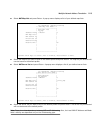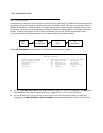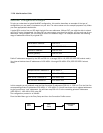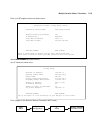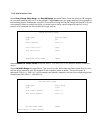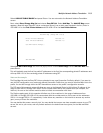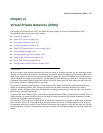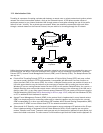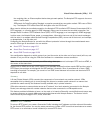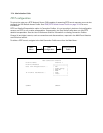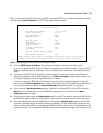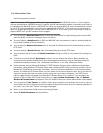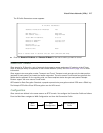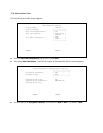
Virtual Private Networks (VPNs) 12-1
CC
CC
hh
hh
aa
aa
pp
pp
tt
tt
ee
ee
rr
rr
11
11
22
22
VV
VV
ii
ii
rr
rr
tt
tt
uu
uu
aa
aa
ll
ll
PP
PP
rr
rr
ii
ii
vv
vv
aa
aa
tt
tt
ee
ee
NN
NN
ee
ee
tt
tt
ww
ww
oo
oo
rr
rr
kk
kk
ss
ss
((
((
VV
VV
PP
PP
NN
NN
ss
ss
))
))
The Netopia 4752 offers IPsec, PPTP, and ATMP tunneling support for Virtual Private Networks (VPN).
The following topics are covered in this chapter:
■ Overview on page 12-1
■ About PPTP Tunnels on page 12-3
■ About IPsec Tunnels on page 12-7
■ Encryption Support on page 12-12
■ ATMP/PPTP Default Answer Profile on page 12-13
■ VPN QuickView on page 12-14
■ Dial-Up Networking for VPN on page 12-15
■ Installing the VPN Client on page 12-18
■ About ATMP Tunnels on page 12-20
■ Allowing VPNs through a Firewall on page 12-23
Overview
When you make a long distance telephone call from your home to a relative far away, you are creating a private
network. You can hold a conversation, and exchange information about the happenings on opposite sides of the
state, or the continent, that you are mutually interested in. When your next door neighbor picks up the phone to
call her daughter at college, at the same time you are talking to your relatives, your calls don't overlap, but each
is separate and private. Neither house has a direct wire to the places they call. Both share the same lines on
the telephone poles (or underground) on the street.
These calls are virtual private networks. Virtual, because they appear to be direct connections between the
calling and answering parties, even though they travel over the public wires and switches of the phone
company; private, because neither pair of calling and answering parties interacts with the other; and networks,
because they exchange information.
Computers can do the same thing; it's called Virtual Private Networks (VPNs). Equipped with a Netopia 4752, a
single computer or private network (LAN) can establish a private connection with another computer or private
network over the public network (Internet).
The Netopia 4752 can be used in VPNs either to initiate the connection or to answer it. When used in this way,
the routers are said to be tunnelling through the public network (Internet). The advantages are that, like your
long distance phone call, you don't need a direct line between one computer or LAN and the other, but use the
local connections, making it much cheaper; and the information you exchange through your tunnel is private and
secure.



